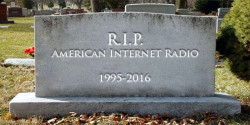We dig into the Copyright Royalty Board’s decision on new royalty payments for internet radio, looking for clues about the future of small and medium-sized webcasters. In our final review of the 20th anniversary of the Telecom Act of 1996, Matthew Lasar explains how the Act and the political environment of the time affected community […]








